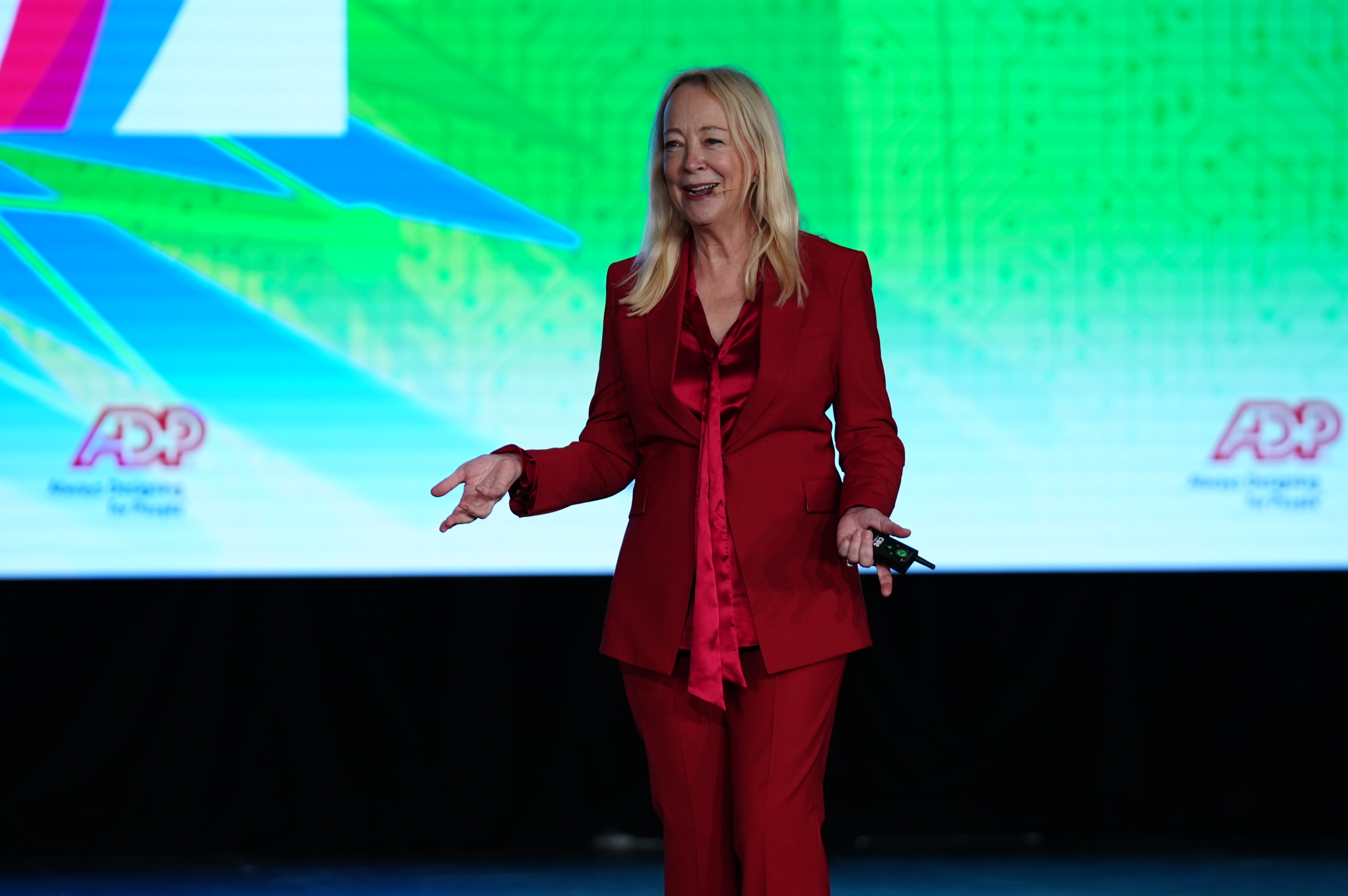Bryan Kirk and Emily West
May 8, 2024
Keynote Speaker Lynda Gratton Speaks on The Future of Work at Payroll Congress

The future of work isn’t quite what some deep thinkers more than a century ago predicted it would be like in the 21st Century. Perhaps we remember reading stories in our youth about an automated society dominated by robots performing most of the work while human beings live long, leisurely lives. Or maybe some of us remember watching “The Jetsons” on Saturday mornings, marveling at the automated devices and robotic maid.
Automation has certainly taken center stage in our current world of work, with the growth of robotic processes and artificial intelligence (AI) now more common in the workplace, so perhaps the future of work has arrived.
Keynote Speaker Lynda Gratton—thought leader, best-selling author, and professor at the London Business School—spoke during the General Session today at the 42nd Annual Payroll Congress in Nashville, Tennessee.
Gratton, who is also the founder and CEO of HSM Advisory, spoke about new ways of working in her message, “The Future of Work Is Now, And Here is How To Thrive,” based on a program she created in 2009.
“I was one of the first academics to start thinking about the future of work,” she said. “I realized early on—from about 2010 onward—that the world was changing, and that people were focused on technology.”
However, what wasn’t being addressed in 2010 was the demographic and societal changes which showed that mortality rates and birthrates in many industrialized countries were declining. Of course, the declining birthrate meant more women were working and ascending to leadership roles than had happened in previous decades.
Already a published author before she launched HSM Advisory in 2009, Gratton was driven to write more about the future of work. In 2011, she published “The Shift: The Future of Work is Already Here.”
“The question of the future of work has always been the central question of all my research, all my writing, and all my teaching,” she said. “I focus on work because I find it fascinating.”
Gratton said there are several significant factors that are impacting work, but the two most significant are currently remote work and generative AI.
“Generative AI is the first technology that has really impacted knowledge-based work, which is the sort of work that many of us do,” she said. “Before, AI impacted spreadsheets, delivery schedules, and so on. We found it very helpful because it didn’t do what we did, but now it is doing what we do, and everyone is talking about it. It’s a very big deal.”
Gratton said she wanted her message to resonate with payroll professionals and hoped that they might see the significance Generative AI has on their industry, and find proactive ways of using this technology, instead of fearing it. She also hopes payroll professionals embrace the concept of working longer and look at how their careers could evolve.
“These are big ah-ha moments,” she said. “Generative AI will transform the lives of payroll professionals and they must think about how they will work with this technology. As people live longer—and this includes payroll professionals—they start to think about working longer, and if they do work longer, consider the skills they want to build upon.”
Congress attendee Patty Long, ![]() PP, said she was impressed with Gratton's keynote speech and her vision of Generative AI.
PP, said she was impressed with Gratton's keynote speech and her vision of Generative AI.
"She was very informative about what she sees for the future. It's interesting to hear the perspective that AI won't take over, but it will empower the next generation," said Long. "You can work smarter. Maybe not harder. But definitely smarter. It is scary to think that some of our jobs could be replaced by technology but you just have to stay one step ahead — to push yourself forward."
Kathleen Barrett, CPP, the Payroll Supervisor at Tridentcare, was also impressed with her grasp on the future of work and the use of AI in the workplace.
"She is well-respected in the industry — globally, not just U.S.-centric. She's giving us the perspective of how other countries and other industries are feeling it," said Barrett. "There are many industries who will grasp it or fall behind. Don't be scared. Use it to augment your talent. I think we will find ways for it to augment us and not replace us."
Bryan Kirk is the Senior Writer and Editor of Membership Publications for PayrollOrg. Emily R. West is a freelance writer and reporter based in Nashville, Tennessee.




